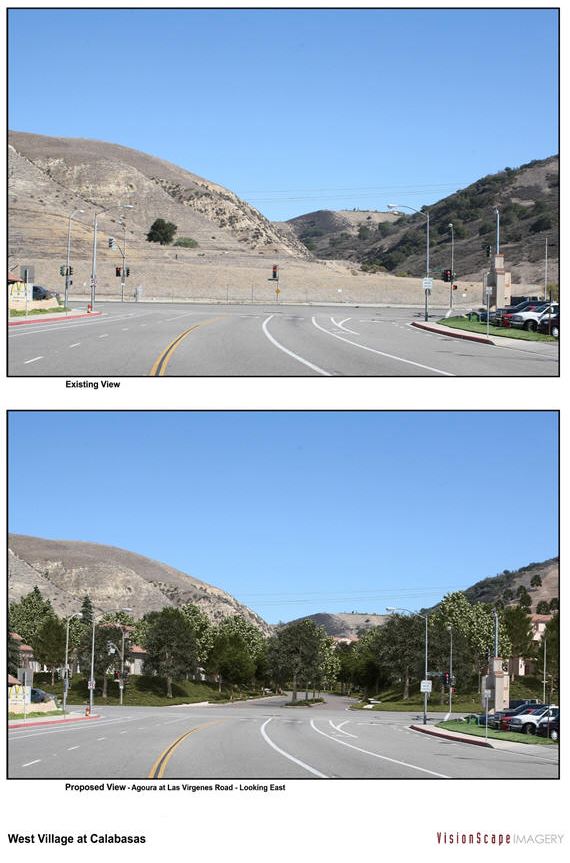December 1, 2021 - CALABASAS, Calif.— The Center for Biological Diversity, Sierra Club and the California Native Plant Society filed a motion this week to defend a Calabasas City Council’s denial of a residential and commercial development proposed for the city’s fire-prone hillsides. In May city leaders unanimously voted against the 180-unit West Village at Calabasas project, citing wildfire risks and the loss of open space.
The intervention, filed in Los Angeles County Superior Court, is in response to lawsuits from the Building Industry Association of Southern California and the project’s developers. The lawsuits seek to force the city to approve the project.
“Calabasas knows the unpredictability of wildfires all too well. The last thing this community needs is a development that increases the likelihood of another disaster,” said J.P. Rose, a senior attorney at the Center. “City leaders made a prudent choice by rejecting such a risky project.”
The Woolsey Fire burned through much of this area in 2018. The 77-acre property has been designated by CalFire as a “very high fire hazard severity zone.”
“City leaders were right to protect their community from unneeded sprawl developments, which increase wildfire risks and local air pollution,” said Sierra Club Angeles Chapter Director Morgan Goodwin. “Instead, Calabasas should focus on building the infill housing Californians need desperately near resource-rich areas close to transit and jobs. This is the only realistic way to prevent sprawl.”
The proposed development would degrade a major corridor for wildlife, including mountain lions, which are suffering from low genetic diversity due to habitat fragmentation. The project, located in oak woodlands and riparian habitats, would also harm native biodiversity.
“Based on local planning documents, this project would impact more than 90 percent of the property and extend far beyond the development footprint allowed,” said Julie Clark De Blasio, conservation co-chair of the CNPS Los Angeles/Santa Monica Mountains Chapter. “Those impacts matter, because it is located next to permanently preserved open space, hosts rare water features and plants, and is within a bisection of two well-documented north-south and east-west wildlife corridors.”
State officials at the California Department of Fish and Wildlife and Santa Monica Mountains Conservancy also warned of significant adverse biological harms of the developer’s proposal. Today’s motion seeks to uphold the city council’s rejection of the project.
Artist rendering of West Village Project
Credit: City of Calabasas
The Center for Biological Diversity is a national, nonprofit conservation organization with more than 1.7 million members and online activists dedicated to the protection of endangered species and wild places.
The Sierra Club is a national grassroots environmental organization that amplifies the power of our 3.8 million members and supporters to defend everyone’s right to a healthy world. https://www.sierraclub.org/
The California Native Plant Society (“CNPS”) is a non-profit environmental organization with nearly 11,000 members. CNPS’ mission is to protect California’s native plant heritage and preserve it for future generations through application of science, research, education, and conservation. CNPS works closely with decision-makers, scientists, and local planners to advocate for well-informed and environmentally friendly policies, regulations, and land management practices.
Source: Center for Biological Diversity









